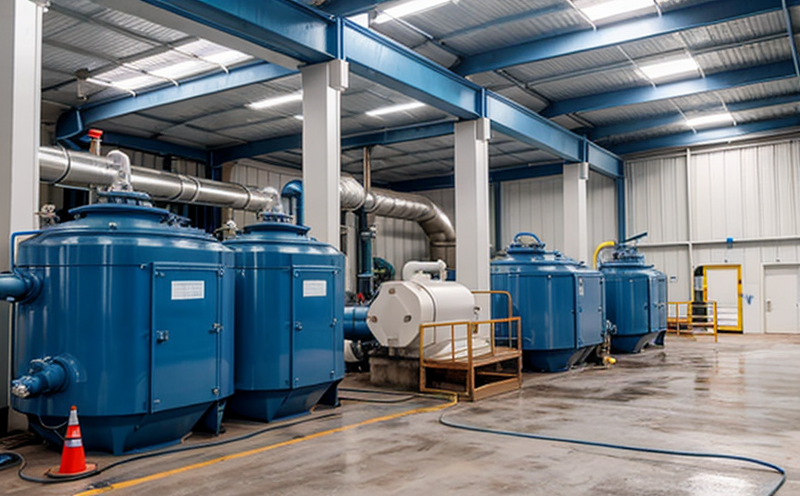IMO D-1 Ballast Water Exchange Standard Testing
The International Maritime Organization's (IMO) regulation D-1 under MARPOL Annex I sets stringent standards for ballast water exchange to prevent the introduction and spread of harmful aquatic organisms and pathogens in international waters. This regulation aims to mitigate the risks associated with biofouling, which can disrupt marine ecosystems and damage ships' equipment.
Compliance with D-1 is crucial for ship operators as it ensures that ballast water exchanged at sea contains no more than 0.1% viable organisms per milliliter. The testing process involves several critical steps to ensure accurate and reliable results, which are essential for meeting regulatory requirements.
Our laboratory specializes in conducting comprehensive IMO D-1 Ballast Water Exchange Standard Testing services. We utilize advanced instrumentation and robust methodologies that adhere strictly to the latest international standards such as ISO 21970:2018. Our team of experts ensures that every test is conducted with precision, ensuring compliance with regulatory requirements.
One of the key challenges in D-1 testing is the accurate measurement and quantification of viable organisms present in ballast water samples. We employ a multi-step approach to ensure thorough analysis:
- Sample Collection: Samples are collected from various points on board the vessel, ensuring representativeness.
- Sedimentation and Filtration: Sediments and larger particles are separated using appropriate filtration techniques to ensure a homogenous sample.
- Enumeration Techniques: We use microscopic examination along with advanced cultivation methods to count viable organisms.
The precision of our testing is further enhanced by the use of standardized protocols and validated reference materials. This ensures that our results are consistent, reproducible, and reliable. Our laboratory is equipped with state-of-the-art equipment, including high-powered microscopes, automated counting systems, and advanced culturing facilities.
Our commitment to quality extends beyond technical expertise; we also ensure that our clients receive clear, actionable reports that highlight areas for improvement if necessary. This proactive approach helps ship operators maintain compliance with regulatory requirements and ensures the longevity of their vessels by minimizing biofouling-related issues.
Benefits
Compliance with IMO D-1 regulations not only protects marine ecosystems but also offers significant benefits to ship operators. By adhering to these standards, shipowners and operators can:
- Avoid Penalties and Fines: Non-compliance can result in substantial fines and reputational damage.
- Enhance Operational Efficiency: Regular testing ensures that ballast water exchange processes are optimized, reducing the risk of biofouling-related issues such as increased fuel consumption and reduced speed.
- Maintain Reputation: Demonstrating a commitment to environmental responsibility can enhance your company’s reputation among stakeholders and clients.
- Ensure Longevity of Equipment: By minimizing biofouling, the lifespan of hulls and other equipment is extended, reducing maintenance costs.
Customer Impact and Satisfaction
We understand that compliance with IMO D-1 regulations is not just a legal requirement but also an operational necessity. Our clients benefit from our comprehensive testing services in several ways:
- Prompt Reporting: We provide timely reports that are crucial for planning and implementing corrective actions.
- Expert Guidance: Our team of experts offers guidance on best practices to ensure ongoing compliance with D-1 regulations.
- Cost Efficiency: By identifying issues early, we help clients avoid costly repairs and replacements down the line.
Our commitment to excellence is reflected in the high satisfaction levels of our clients. We strive to provide a seamless service experience that meets or exceeds expectations every time.
Competitive Advantage and Market Impact
- Enhanced Reputation: Demonstrating compliance with IMO D-1 regulations can significantly enhance your company’s reputation, particularly in the eyes of environmentally conscious stakeholders.
- Increased Trust: Clients are more likely to trust companies that demonstrate a proactive approach to environmental responsibility.
- Competitive Edge: In an increasingly regulated environment, compliance with international standards can be a key differentiator in the market.





